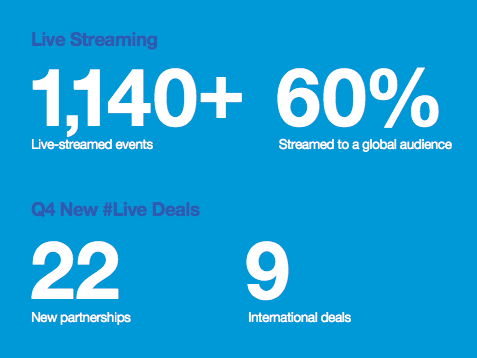How accessible is theatre in 2018, particularly to young people in poorer parts of the UK? The West End premium is still a problem and there are never enough offers like this to go around. Meanwhile, the Tate has decided to open all art exhibitions to 16-25s for just £5, a strategy that other major venues should follow.
It’s hard to imagine under-18s in the UK spending what little pocket change they have on a ticket to a new play when they can find what they like online, usually for little or nothing. But this issue goes deeper than cost.
It’s a two-part problem: content and delivery. We need more commissioned voices out there that can directly and very candidly speak of the times we are living in, using (and often subverting) the language and imagery of those times. This is particularly so for those from minority backgrounds. Never underestimate the power of seeing and hearing yourself on stage/screen.
Talawa has been a vital conduit in that regard, and there are occasional breakthroughs like the phenomenally successful Barbershop Chronicles, the vision of Inua Ellams and the product of years of persistent hustle. But these examples stand out because there are so few like them.
Which brings me to Goldfish Bowl, currently running at Battersea Arts Centre for the bargain price of around £10. This is a Paper Birds production starring former Young People’s Laureate Caleb Femi and featuring fellow Sxwks collective member Lex Amor together with the signature visuals of Olivia Twist.
It has been a work in progress for more than two years now, with previous performances happening at the Roundhouse and the Albany. Not many theatre companies would nurture a production with this much patience and love. Here’s a little taste.
I have met Femi a few times while working on this and this for social enterprise Soul Labels. He has been exploring his heritage for several years and pondering what it means to be British through work such as Children of the Narm and this Heathrow installation.
But I didn’t know how much trauma he had experienced between the early years in Nigeria and growing up on a north Peckham estate. Those “dark forces” at play. The car accidents, the fights, the gang violence… Last night he described Goldfish Bowl as his origin story – not how he became a superhero but how he became an English teacher. Is there a difference?
That small theatre was like a portal for the audience. Harnessing very minimal yet evocative set design – a dangling mic, a telephone, a heart monitor made of strip lighting, a cracked mirror backdrop, a hospital gown and a copy of Frankenstein – Femi eased his way into the story through a serious of seemingly off-the-cuff conversations with Amor. It was like two mates ribbing each other in the pub; so playful, in fact, that we were almost blindsided by some of the darker moments to come.
Goldfish Bowl is a whirl, constantly shifting its focal point, tone and topic. The structure was fragmented and the energy off-kilter, which kept you on alert. One moment Femi would be playing schoolyard games and trawling 90’s pop culture with Amor, the next they would be trading bars over a grime beat, or simulating a classroom situation while addressing the audience.
Femi’s transition from conversation to spoken word performance was subtle and moving, particularly when paired with Twist’s animated etchings of the faces and places of his youth. He would turn tender memories of past loves and lost friends into poignant verse, then offer incisive commentary on topics such as the education system and life in Britain as the child of immigrants. This freeform, freestyle approach felt like the only way to tell his nuanced tale – more visceral than film, for intimate than radio. In the open.
In the context of current headlines – the escalation in knife crime, drill music and the demonisation of young black men – Goldfish Bowl resonates even more deeply. But rather than dwell on these issues, which often come to define how others view a whole demographic, this play serves as a reminder that how you respond to certain experiences is more important than the experiences themselves in determining who you become.
Femi was shot aged just 17, something he has described as “a random altercation" and "being in the wrong place at the wrong time with the wrong person". Speaking to the Independent, he reframed the discussion on gang violence: “You have a group of friends – they’re just friends, your friends. You stick with them. And the more you stick with them, the more you’re associated with your friends. You grow up not really knowing you’re ‘a gang’ – not in the way it’s usually portrayed. If someone troubles your friend, if someone stabs your friend, you’re going to get involved. It happens like that. And before you know it, you’re swept away.”
That day was his wake-up call. As he sits in the hospital bed holding Frankenstein in both hands, like a prayer book offering salvation, he asks, “What is a poem?” In that moment, we understand the power of literature as a means of self-realisation, and the potential of the writer as not only a mythologist but a maker of meaning.
You may not have been born to Nigeria, called Peckham your “endz”, smelt so much of home in a head of hair, made your own entertainment on a council estate, lost “fam” or stared death in the face. But you will recognise what it feels like to stumble, to find your place and maybe, just maybe, to have a dream.
Goldfish Bowl takes you there, as great art should. It’s universal, like a heart that beats for life. And definatly so.
Goldfish Bowl is running at Battersea Arts Centre until 16 June.








